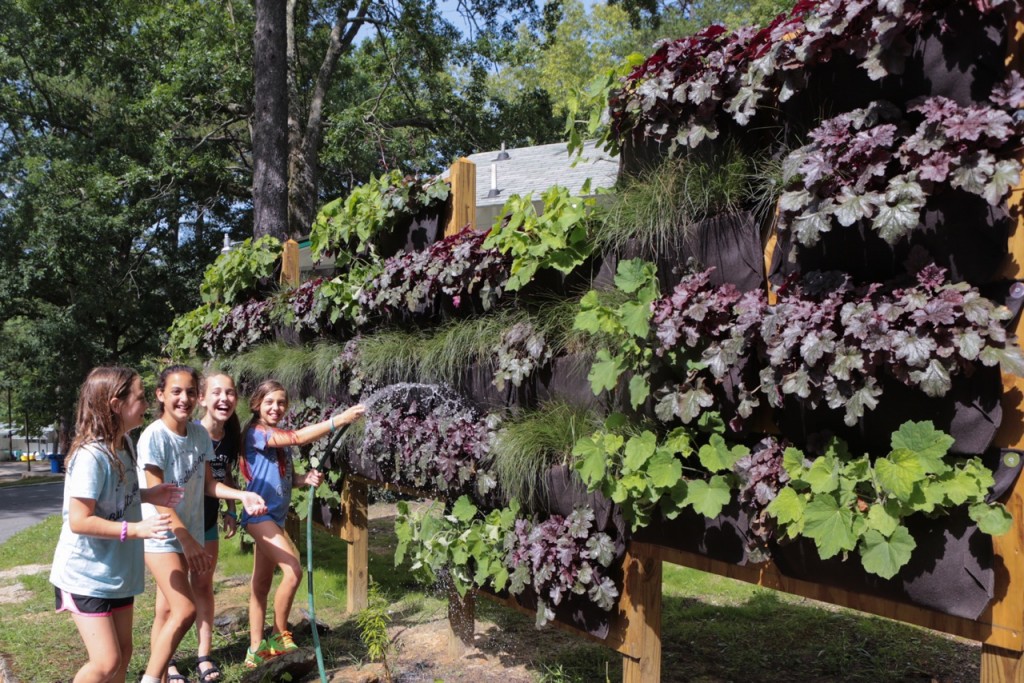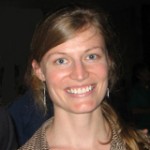
 Guest Blogger: Kristen Haaf
Guest Blogger: Kristen Haaf
Kristen Ford Haaf is a designer and owner of Roots First Design (www.rootsfirst.com). She is passionate about uncovering ecological potential in unlikely places. As a designer, she has worked on projects at a range of scales, from regional open space and mobility plans, to citywide placemaking plans, to several-acre edible forests, to small children’s gardens and playscapes.
As an undergrad at Duke University studying Environmental Policy, Kristen was especially concerned about the connection between public health and the choices we make as a society. After spending several years working with community environmental non-profits in Durham and Ecuador, she went on to receive her Master of City and Regional Planning from UNC and her Master of Landscape Architecture from NC State. Kristen also received a Permaculture Design Certificate from Earthaven EcoVillage in Black Mountain, NC.
Kristen designed a comprehensive landscape plan for Blue Star this summer with an entirely native plant palette as well as designed our new living wall, a statement of Blue Star’s commitment to sustainability. Kristen was on site at camp this past Saturday leading educational sessions with our campers about living walls and vertical gardens.
Kristen is especially excited about projects where she can engage young people in thinking about how to add green to their world. Kristen cherishes time outside, enjoying hiking and gardening with her husband and three kids.
BLUE STAR’S LIVING WALL AND NEW LANDSCAPE DESIGN
Entering Blue Star for the first time this year you may have noticed many changes throughout the camp. Buildings have been painted and renovated and new gardens are growing with plants that are native to the Appalachians of North Carolina. Most unique among these gardens is the wall of green that is growing at the heart of camp across from the Health Center.
This new installation is a garden, but it’s not the kind you may be used to. Designed to grow vertically on a wall, rather than horizontally on the ground, we call this garden a green wall, living wall or vertical garden. Close your eyes and imagine what you think of when you hear the term ‘living wall’. If you imagined a wall that is breathing with life and teeming with green, then you’ve pictured what we hope for with our first living wall at Blue Star.
Living walls can be built inside or outside on a wall of a building or as a freestanding screen like the one here at camp. This particular living wall is made up of 54 Woolly Pockets, which are modular, breathable garden planters that are light enough to hang on a wall but durable enough to hold soil and plants and keep them watered. Planted with species that are tough enough to grow sideways, these vertical gardens help to purify the air we breathe and can be used to improve water quality when they are set up to capture rainwater from roofs. They are also linked to lower stress levels in people who work near green walls and they can serve as a palette for public art. Living walls are often used in urban areas without a lot of trees because they can make a big green impact in relatively small, leftover spaces.
But we’re not in a city, so why do we have one here? Almost more important than the positive environmental effects of green walls is the way that they can capture our imagination. As public art, a green wall tells a story about a place and serves as a symbol of positive change. Our green wall is made up of six interconnected panels that symbolize the six camps of Blue Star. The swooshing pattern of plants that flows along the length of the wall symbolizes the way that these six camps are tied together as one. Perhaps even more importantly, our green wall signals a hope for the future, a wish that we not only continue to introduce more and more sustainability efforts around camp, but also that the campers who see our green wall every day start to imagine new ways to build buildings and cities and dream of a greener world for the future.
